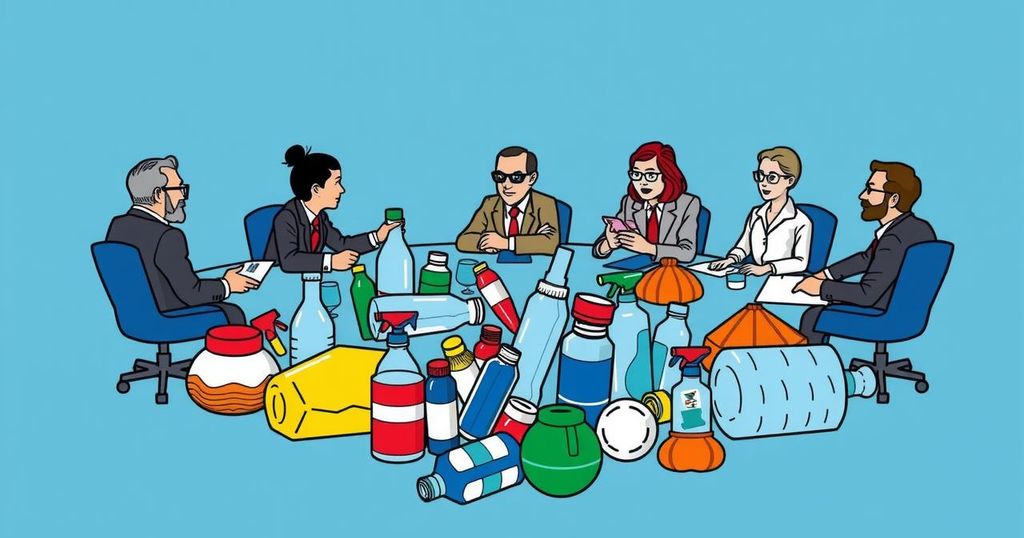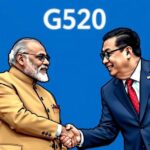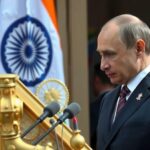Politics
ADDIS ABABA, AFP, AFRICA, AMHARIC, ASIA, ETHIOPIA, EUROPE/ASIA, EYAD ALJUBRAN, EZEDIN MUSTE, GEOPOLITICS, GROUP, INDIA, INTERNATIONAL RELATIONS, KORALE, LUIS VAYAS VALDIVIESO, MICHELE SPATARI, OPERATION, ORGANISATION FOR, ORGANISATION FOR ECONOMIC CO, RUSSIA, SUSTAINABLE DEVELOPMENT, TRADE
Nia Simpson
Deep Divisions Emerge in Final Negotiations for Plastic Pollution Treaty
Negotiations for the world’s first comprehensive plastic pollution treaty began in Busan, South Korea, revealing stark differences among nations. The complexities of reaching a consensus on binding targets for plastic production and addressing it throughout its lifecycle reflect the broader challenges of international environmental agreements. Observers remain cautiously optimistic about the potential outcomes despite the significant resistance to ambitious actions from certain countries.
The final round of negotiations for a landmark treaty to address plastic pollution commenced on November 25, 2024, in Busan, South Korea. Disparities among nations quickly surfaced, reflecting the complex challenges in reaching a consensus on stabilizing plastic production and reducing environmental impact. Despite global acknowledgment of plastic pollution’s pervasive harm, countries diverge significantly on proposed solutions, particularly regarding definitive action on production limitations and chemical regulations. The chair of the conference emphasized the crucial nature of this treaty in mitigating a pressing existential environmental crisis.
In the past two years of discussions, previous rounds have produced a 70-page draft treaty riddled with contradictions, reflecting the varying interests of nations. An alternative document aimed at reconciling these differences faced immediate opposition, notably from representatives of oil-dependent countries. Meanwhile, a coalition of nations advocating for stringent measures seeks to encompass the entire plastic lifecycle, urging for binding international targets against the escalating production levels that contribute to climate change.
With plastic production anticipated to triple by 2060, significant pressure mounts on delegates to act decisively amid fears that vested interests may jeopardize ambitious solutions. Observers express concern that time restrictions could lead to diluted commitments. Despite these obstacles, the UN Environment Programme has encouraged patience, recalling the lengthy negotiations that ultimately led to the Paris Agreement.
An initial agreement around a streamlined negotiating document has managed to propel discussions forward, fostering hope that a strong treaty can emerge from this pivotal moment.
Plastic pollution has rapidly escalated into a critical global environmental issue, afflicting oceans, air quality, and human health. The production of plastics surged from approximately 200 million tonnes in 2000 to nearly 460 million tonnes in 2019. Consequently, countries from various economic backgrounds are attempting to reconcile their differing approaches to confronting this pervasive problem. The upcoming treaty negotiations are the culmination of two years of dialogue aimed at creating actionable frameworks for tackling plastic pollution holistically. Ultimately, the outcome will significantly impact global environmental policies.
The opening of international negotiations in Busan symbolizes a critical attempt to address the multifaceted challenges of plastic pollution. Despite the strong recognition of the issue, national interests pose substantial hurdles. The progress observed thus far is tentative, suggesting a challenging journey ahead for a cohesive and effective treaty. Nonetheless, the ongoing discussions represent a step toward collective global action against one of the most pressing environmental challenges of our time.
Original Source: www.seychellesnewsagency.com








Post Comment